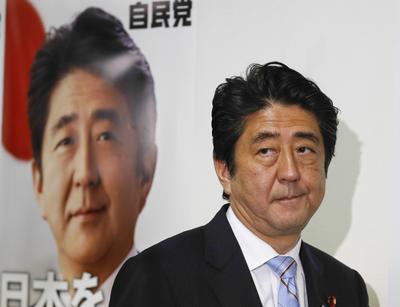House of Councillors elections in Japan generally pass unnoticed in the international media because the upper house is less powerful than the House of Representatives in forming government and passing legislation. But analysts and political pundits across the globe have had their eyes fixed on the outcome of this House of Councillors election. Why?
Since the 2007 upper house election during Abe’s first term as prime minister (2006–2007), Japan has faced a twisted parliament (nejire kokkai), with the ruling party lacking a simple majority in the upper house, making it difficult to pass legislation. The LDP under Abe suffered a crushing defeat and lost its upper house majority in that election even though it maintained its majority in the lower house. Parliamentary gridlock continued even when the Democratic Party of Japan (DPJ) came to power in 2009. The difficulty of passing of bills through parliament led to policy paralysis.
Sunday’s upper house election results have important implications domestically and internationally.
First, if the LDP remains united behind its leader until 2015 when the other half of the upper house comes up for election, Abe is likely to continue as Japan’s prime minister, giving Japan some sorely needed political and policy continuity. And if the lower house is not dissolved before its full term, a general election is not due until the end of 2016.
Second, now that the LDP–Komeito coalition has a comfortable majority in both houses, the Abe government should be able to pass legislation rather smoothly.
Third, political stability domestically will also have positive implications in the international arena. After Junichiro Koizumi stepped down as prime minister in 2006, Japan had six prime ministers in six years until Abe was re-elected to the position in December 2012. World political leaders are therefore likely to welcome the end of revolving door prime ministers in Japan.
But while political stability is welcome, just how successful Abe’s policies will be is unclear. Many believe his ‘Abenomics’ has worked thus far, and his party received overwhelming support from voters for his economic reform pledge. But what this pledge actually entails remains unclear.
Abe will need to act judiciously on a range of contentious issues, including whether to reopen nuclear power plants, gradually increase the consumption tax from 5 to 10 per cent, and move ahead with joining the Trans-Pacific Partnership (and, should it join, on what conditions). Each of these issues has strong lobby groups prosecuting the case for and against. Not even within the ruling party itself and its coalition partner can consensus be found on these issues.
It will become even more challenging for the LDP to maintain its electoral gains if Abe vigorously pursues his nationalist agenda and tries to revise the Constitution with the aim of amending the pacifist clause, Article 9. Here too Abe faces both supporters and opponents. How he balances conflicting demands and what outcomes he achieves will be watched closely inside and outside Japan.
By delivering the LDP coalition a solid parliamentary majority, the 2013 upper house election has increased political stability for Abe, his party and the nation. But Abe’s real test is to maintain party unity and his own popularity while pulling toward desired policy outcomes in the face of so many controversial issues and challenges. The road ahead for Abe will be very difficult.
Purnendra Jain is Professor in Asian Studies at the University of Adelaide.

